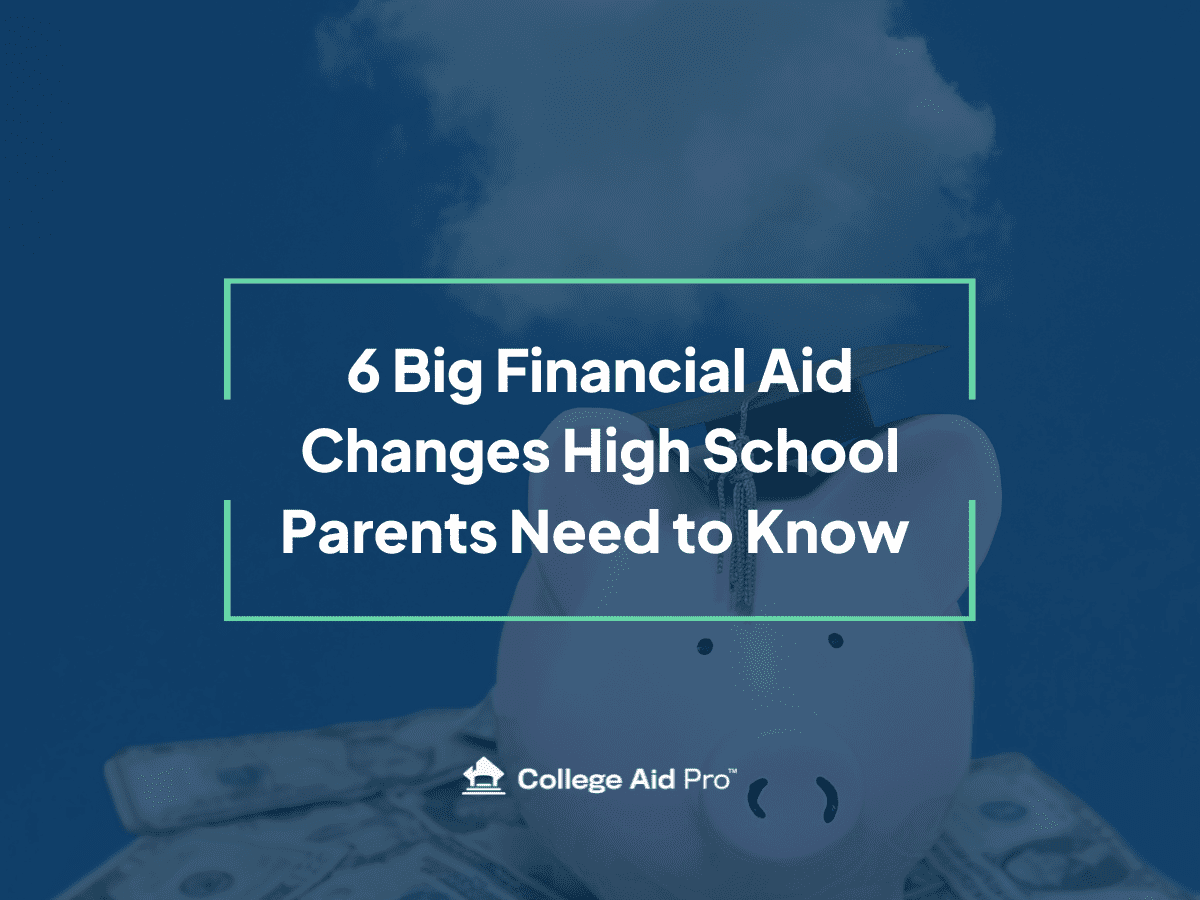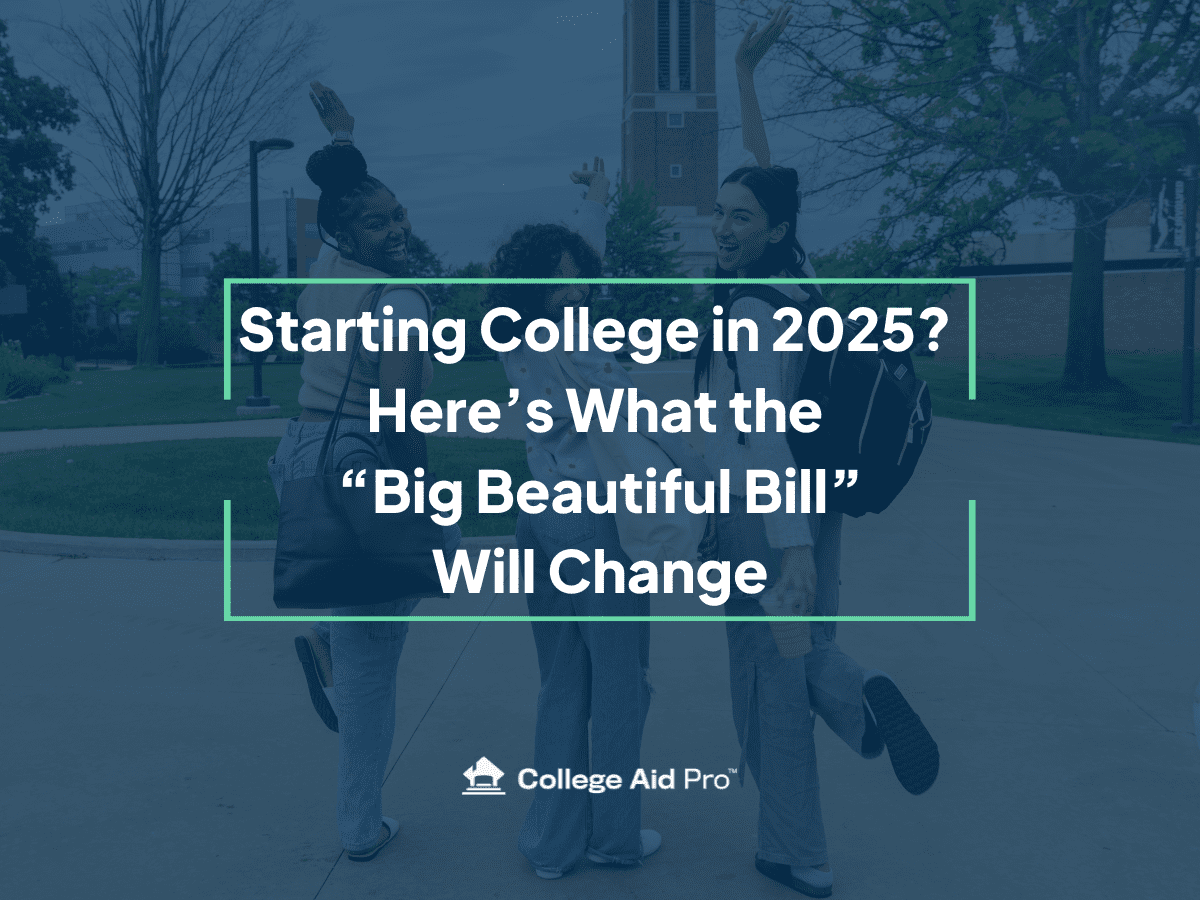College! Podcast Episode 7: The Future of College Costs: Financial Aid, Loans & What Families Should Expect in 2025
As college costs continue to rise and federal policies shift, families must stay informed to make the best financial decisions. Recent changes in financial aid, student loan forgiveness, and university policies are creating uncertainty for students and parents alike. Additionally, the political climate on college campuses is affecting institutions like Columbia University, which recently lost $400 million in federal funding.
In this article, we break down the most critical updates impacting college financial planning, FAFSA, student loans, and university policies so families can better navigate the evolving landscape as they are discussed in our most recent College! Podcast Episode.
College Costs & Financial Aid Changes for 2025
Many families rely on FAFSA (Free Application for Federal Student Aid) to secure financial aid for college. While the Department of Education has not announced any plans to dismantle FAFSA, significant budget cuts and staff reductions could lead to delays and inefficiencies.
What’s Changing?
- Potential FAFSA processing delays: As federal staff reductions continue, families may experience longer wait times when applying for aid.
- Possible reductions in Pell Grants: While Pell Grants are a federal entitlement, their amounts may decrease in the future.
- Shifts in state aid funding: Since federal funds support state universities, changes at the national level may impact public colleges’ affordability.
How to Prepare for College Costs in 2025
- Apply for financial aid early – Delays may occur, so submitting your FAFSA as soon as possible is crucial.
- Research schools that offer strong need-based aid – Some private colleges provide more financial aid than public institutions.
- Understand the true cost of attendance – Look beyond tuition and consider room, board, and hidden expenses.
Student Loan Forgiveness & Borrowing Updates
One of the biggest concerns for parents and students is student loan repayment and forgiveness. The Biden administration previously introduced various student loan forgiveness programs, but the Trump administration has made it clear they intend to scale back or eliminate these initiatives.
Key Loan Policy Changes
- SAVE Plan & Income-Driven Repayment (IDR) may be phased out – Borrowers should not count on loan forgiveness or income-adjusted repayment plans.
- Subsidized Federal Loans are at risk – While they are still available, future changes could impact eligibility.
- Parent PLUS Loans may see restrictions – These federal loans for parents might face stricter lending terms.
Not sure how to plan around these new changes? Tune into the full episode to learn how!
How Families Can Adapt
- Build credit early – A strong credit score for both parents and students can secure better private loan terms.
- Explore private lending options – With federal loan restrictions increasing, parents should compare private lenders.
- Appeal financial aid offers – Families can negotiate financial aid packages to secure more funding.
Want to learn how Peg got her TWINS to build their own credit scores in high school? Listen to the full episode to find out!
University Hiring Freezes & Their Impact on Students
Even prestigious institutions with billion-dollar endowments, such as Harvard and Stanford, are implementing hiring freezes due to financial uncertainty. This move raises concerns about overcrowded classes, reduced resources, and program cuts.
How This Affects Students
- Larger class sizes & fewer professors – Students may struggle to get into required courses.
- Elimination of certain majors – Less popular programs could be cut to save money.
- Reduced campus resources – Fewer faculty and staff may mean less support for students.
What Parents & Students Can Do
- Research the stability of academic programs – Ensure your child’s intended major is well-funded.
- Consider smaller colleges – Some private colleges may maintain better student-to-faculty ratios.
- Look into internship opportunities – If academic programs shrink, hands-on experience becomes even more crucial.
Is your student’s major at risk of being eliminated by their dream school? Learn how to plan ahead to avoid their major being eliminated while studying it!
Columbia University’s Federal Funding Cut: A Warning for Other Schools?
A major recent development in higher education is the Trump administration’s decision to withhold $400 million from Columbia University due to reports of anti-Semitic protests and campus unrest. Other schools, including NYU, Northwestern, and Johns Hopkins, are also under scrutiny.
Why Is This Happening?
- The administration claims that some protests on college campuses have crossed the line into illegal activity.
- Universities that fail to enforce campus policies and address hostile environments may face federal funding cuts.
- Some students and faculty argue that these actions infringe on free speech rights.
What This Means for Future Students
- College policies could become stricter – Expect new campus regulations regarding protests and speech.
- Financial aid at impacted universities may decrease – Schools losing federal funds might cut scholarships or services.
- Some institutions may face legal battles – Lawsuits challenging these funding cuts could take years to resolve.
For families researching colleges, it’s more important than ever to understand the political and financial stability of each institution before committing to a school.
Final Thoughts: How Families Can Stay Ahead in 2025
With so many changes happening in higher education, families must take a proactive approach to college planning. Here are some key takeaways:
- Don’t assume student loan forgiveness will be available – Plan as if you’ll need to repay the full loan amount.
- Shop around for financial aid and private loans – Federal aid is changing, and private funding may be necessary.
- Stay informed on university policies – Research potential program cuts, hiring freezes, and campus climate concerns.
- Plan before touring colleges – Understand each school’s true costs before falling in love with a campus.
Planning to retire before 75? Me too! Tune into our Podcast to learn how to pay for college and not tap into your retirement funds.
The best way to secure an affordable college education is through careful planning and informed decision-making. By staying on top of FAFSA updates, student loan policies, and university changes, families can better navigate the challenges of paying for college in 2025.
Want more expert insights? Listen to the full College! podcast episode and follow us for the latest updates on financial aid, student loans, and college admissions.



